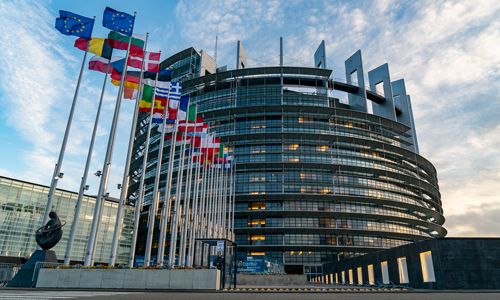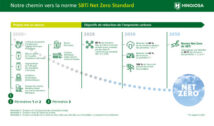
Yesterday, the European Parliament adopted a resolution on the New Industrial Strategy for Europe, a report by Italian Member of the European Parliament Carlo Calenda (S&D – Envi Committee).
The report calls for the new industrial strategy – planned for publication in March next year – to be in line with the goal of climate neutrality by 2050 and to create the conditions for an innovative, inclusive, resilient, digitalised society.
In the context of the COVID19 pandemic, it asks for the new strategy to drive reindustrialisation and industry reconstruction by supporting sustainable and digital strategic value chains.
The European paper industry is already working together with the forest-based value-chain to build a greener recovery generating more sustainable added value and jobs.
“Unlike most other industries and being based mostly on European raw materials, we manufacture and recycle in Europe, with European technology and generate significant export income to the society. The resilient economy that politicians wanted after the Corona crisis is here, in our sector. Not to be lost!” commented Jori Ringman, Cepi Director General.
The report underlines that there is significant potential in domestic and global markets for zero and low emission technologies, renewables, and sustainable products, processes and services, throughout the entire value chain from raw materials to energy-intensive industries, manufacturing and the industrial services sector.
Indeed, the paper industry already provides low-carbon solutions for many sectors today: media, packaging, health care and hygiene but also and increasingly for textiles. Cellulose-based materials can even replace fossil components used in portable technologies and batteries and the virtually limitless possibilities in biorefineries help us champion in bio-based green chemistry.
We are deeply connected with a number of the ecosystems outlined by the European Commission namely agri-food for packaging, energy intensive industries for our processes, energy and CO2-related projects and biorefineries, textile for cellulose-based textiles, retail for packaging and food service, and health for hygiene products.
The report also gives particular attention to the case of SMEs and the challenge that digitalization can mean for them. The European Paper industry is two-thirds composed of SMEs, and we are a fertile ecosystem for digital services and applications.
Finally, the Calenda report addresses the issue of the new recovery instrument budget cuts asking for an ambitious and stronger long-term EU budget for 2021-2027 to support a sustainable and resilient recovery for the Union’s industry.
Cepi welcomes this request, and is expecting to receive a fair share of funding for de-risking, as the ambitious Green Deal requires equally ambitious financing to make it happen!
One particular investment area where de-risking will be required is the access to cost-competitive carbon neutral energy supply. As mentioned in the Calenda report, the energy transition will be challenging for European energy intensive industries, such as the paper industry.
In order to deliver the necessary emission reductions in our production processes, we will need a regulatory framework that promotes, de-risks, supports and rewards investments in energy efficiency, CO2 avoidance and renewable energies but also availability of affordable climate-neutral energies sources – such as electricity, biogas or hydrogen – without sectoral restrictions. Our industry’s plan to achieve the 2030 and 2050 emission reduction objectives is outlined in our recently published 2030 Industry Manifesto.
The Green Deal has to be translated into a business case, strengthening sustainable and circular industrial value chains in Europe, and ensuring that they are considered of strategic importance.

































